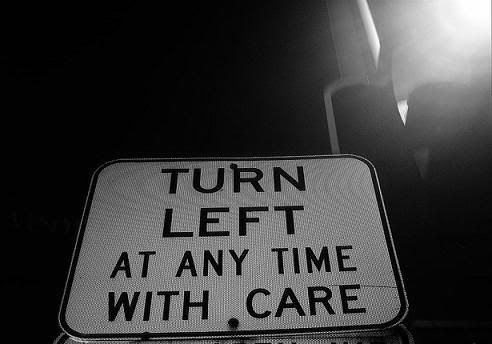
I owe most of the following to a very stimulating discussion I had with my partner the other night (thanks, dear!). We were reflecting on the effects of the Internet in terms of globally streamlining culture and perception.
Even if the "US Americanization" of culture around the globe started way before the Internet became a medium for the masses (with US movies, TV shows, music, etc., being exported more or less globally), the Internet with its global reach uncompared to prior mass-media (which by nature used to be limited in their geographical scope) has an entirely new potential. We had two main points that came up.
First point/hypothesis: The Internet acts as a globalizing force which increasingly molds culture, politics, lifestyle, the kind of topics that are discussed and covered by the media, etc., around the world. It is thus contributing to a lack of variety by mainstreaming everything to the predominant paradigms, perceptions and values, which are essentially US American.
Case in point my partner came up with: Have a look around web sites, such as Yahoo 360, or MySpace, from people with different cultural and geographical backgrounds (Native American, Central American, South American, Middle Eastern, African, Asian, Eastern European, Western European). You will find that most of them (at least that applies to the below-30 crowd) listen to the same music, read the same books (books? You mean those things made from paper with something printed on?), like the same movies, wear the same fashion labels as do their North American counterparts.
This will of course not apply to the underprivileged, but they can be neglected because they don´t have a say anyway. Besides, they are not interesting to global corporations marketing their products, increasingly over the Internet. (The keyword here is "Digital Divide" - thanks sweetheart for bringing this up!)
There may be a few select outlets with unique or grassroots content, and content that is not generally found on the mass media (such as informationclearinghouse.info), but since they only reach a select audience, their influence is limited at best. So we are increasingly drifting towards a Max-Headroomian dystopia (thanks to my partner again for the "M.H." analogy!), the only difference being that the mass medium behind it is not TV but the Internet.
Second point/hypothesis: The Internet has created a substitute environment for both real life social contacts and political action.
The time we spend online is time we no longer spend going out and meeting people. As a consequence, political groups, trade unions, and many other associations and clubs, are experiencing dwindling member numbers.
And the Net is also increasingly replacing political awareness and action. I feel the desire to do something? Fine, I write a blog entry, post a message in a discussion group, send a message of how concerned I am about this-and-that to my mailing list, and I can pat myself on the shoulder, lean back and let it be done with it. No need to get an indepth theoretical foundation, or to discuss political developments, or to develop a strategy/ a plan of action, or to go out and try to convince the masses (YUK!).
Again, grassroots organizations may find the Internet a useful tool for exchanging information and organizing political events, but the effects of their actions are also going to be limited.
We might have a major rally now and then, but since most of those participating don´t stay connected to politics beyond the punctual action of attending a rally, nothing will really come out of this. No sit-ins, no strikes, no major disruptions that might actually force governments, corporations or any other part of the establishment to actually change their course and react, since political implications and "how it all connects" are no longer understood because of the lack of a sound theoretical foundation (by that I don´t necessarily mean you have to read Marx/Engels ... ;) ).
As an aside, I really admire "the French" for being able to kick the Contrat Première Embauche ("Law of first time hiring" - this is probably a terrible translation, my apologies!) which aimed, among other things, to extend the period of probationary employment for all employees under the age of 26 to two years. During that time, an employer would have had the possibility of firing those young employees without providing a reason and without further notice.That law had already been ratified on February 10, 2006 by the National Assembly, put had to be withdrawn on April 7, 2006 due to countrywide protests (mass rallies, strikes, sit-ins at various universities), mainly - but not exclusively - carried by students.
That kind of political action has become rare these days. Now, was that possible because the French are trying to withstand anglization and have so far been less subject to Americanization as a whole?
What´s your take: Do you have become less politically involved (in terms of actually going out like canvassing for a cause, or going on rallies) since the Internet age? Does the Internet serve as some sort of political outlet for you which you use instead of taking action?



No comments:
Post a Comment